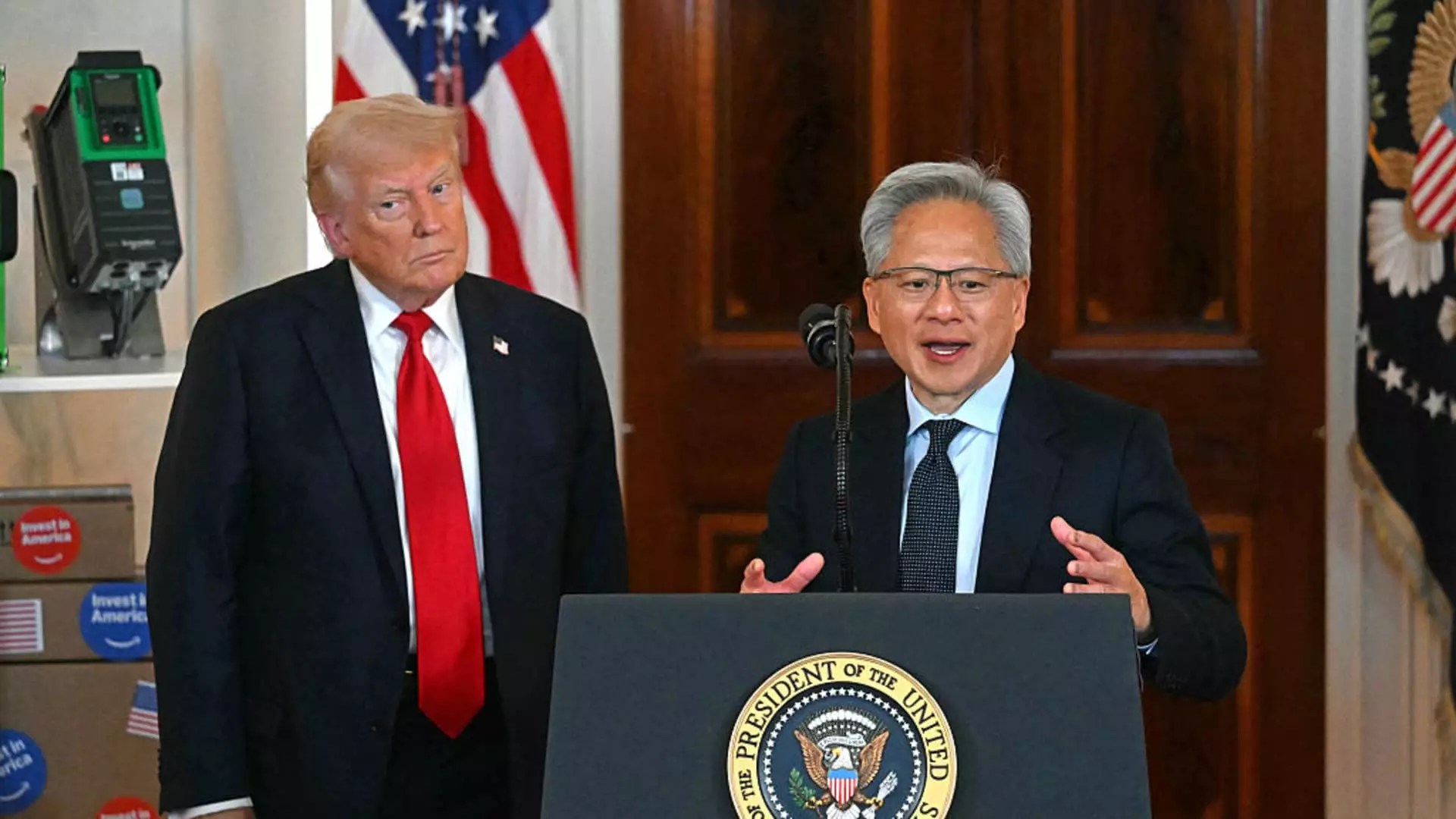In recent months, a contentious debate has emerged at the heart of American innovation and national security—should the United States relax its strict export controls on advanced semiconductor chips to China? The decision to allow Nvidia and AMD to sell certain AI chips to Beijing in exchange for a cut of proceeds has sparked a fierce intellectual battleground. While some see this as a pragmatic move to foster economic benefits and global influence, a closer, more critical examination reveals grave concerns about undermining America’s technological dominance and strategic security.
This decision, purportedly a negotiation to ease restrictions, risks delivering a dangerous message: that economic incentives can outweigh the core strategic imperatives of national security. Senators from the opposite side of the aisle have raised alarm bells, emphasizing that these high-tech chips—potent enablers of artificial intelligence—could significantly bolster China’s military ambitions. The core issue isn’t simply about a revenue-sharing deal; it’s about how such arrangements threaten to erode the technological edge that has long been the backbone of U.S. military superiority.
Historically, the U.S. has maintained dominance in critical technological domains precisely by controlling access and restricting adversaries’ capabilities. Loosening these restrictions, particularly on cutting-edge AI chips, opens a Pandora’s box. China’s military modernization efforts—centered on integrating advanced AI systems—are arguably the most ambitious among global powers. Any compromise in export controls risks empowering an adversary that views technological supremacy as vital to its geopolitical ambitions. It’s ironic that in trying to foster economic cooperation, the U.S. might inadvertently accelerate China’s military capabilities—an outcome that should give policymakers pause.
Economic Gains vs. National Security: The Illusion of Mutual Benefit
Proponents of the Nvidia-AMD arrangement argue that it promotes American innovation and helps maintain America’s leadership in artificial intelligence. Nvidia, in particular, claims that the H20 chip will not bolster Chinese military strength, but will instead attract global developers and foster the American-led AI race. Yet, such assertions seem overly optimistic and dismiss the complexities of strategic technology flow.
The discipline of strategic trade policy teaches us that technology, once released, rarely stays confined within the intended civilian applications. The notion that AI chips like Nvidia’s H20 will be solely used for commercial or civilian purposes is wishful thinking. China’s government has demonstrated a persistent ability and willingness to integrate civilian technology into its military programs. The commentary from analysts highlights an uncomfortable reality: restrictions are increasingly being ignored or circumvented as China finds ways to acquire these chips through black markets, third-party channels, or in-house development.
Furthermore, the economic argument rings hollow when considering the broader implications. The U.S. stands to lose billions in potential revenue, innovation leadership, and strategic superiority if it continues down this path. The decision to monetize AI chip sales through revenue sharing signals a misguided prioritization of short-term financial gains over long-term national interests. It exemplifies a dangerous shift in policy—one that seems to undervalue the importance of technological sovereignty and overemphasizes transactional benefits.
The Political & Strategic Consequences of Compromising U.S. Technological Leadership
This policy choice isn’t merely about semiconductors; it’s a mirror reflecting a broader strategic dilemma: how much should the U.S. be willing to concede in its competition with China? The government’s willingness to negotiate away key elements of its technological superiority indicates a troubling complacency. If the U.S. is willing to sell AI-indicative hardware—arguably the cornerstone of modern military and economic power—it raises fundamental questions about its capacity to defend its interests in an increasingly multipolar world.
The bipartisan concern articulated by senators underscores the broader unease. While some might view this as a necessary economic compromise, the real danger lies in setting a precedent that diminishes the U.S.’s strategic posture. China’s response—urging domestic companies to avoid U.S. chips—demonstrates that the state’s strategic calculus may not be as receptive to American concessions. Their message: the U.S. risks losing influence over critical technologies, both economically and militarily.
In essence, the attempt at a pragmatic solution might be a stepping stone toward strategic capitulation. The outcry from policymakers and defense analysts rightly questions whether the U.S. should accept revenues from sales that could potentially serve as a Trojan horse for enhanced Chinese military power. The current approach, cloaked in economic diplomacy, ignores the core principle that priority must be given to safeguarding America’s long-term strategic interests over fleeting financial benefits.


Leave a Reply